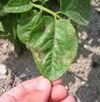Posted 7/20/2010
by USDA Press Room

Online Resource will Expand National Dialogue About Economic Opportunity for Producers
On July 14th Agriculture Secretary Tom Vilsack launched a new feature on the 'Know Your Farmer, Know Your Food' website to highlight local and regional food systems and the multitude of connections being made between farmers and consumers. The new online resource advances a national conversation about food and agriculture and highlights the importance of local and regional food systems – one of the fastest growing segments of agriculture – to American agriculture, the economy, and rural communities.
"By developing our local and regional food systems, we can spur job growth in our rural communities and ultimately strengthen American agriculture," said Secretary Vilsack. "This showcase will serve as a hub of ideas, local success stories, and USDA resources that showcase and strengthen the link between local production and local consumption that benefits producers of all sizes."
The 'Know Your Farmer, Know Your Food' Ideas and Stories webpage - http://kyf.blogs.usda.gov – will provide real-world examples of the outpouring of dedication, entrepreneurship and support for agriculture that are taking place every day across the country. The website also serves as a clearinghouse for USDA resources aimed at linking local producers with consumers and promoting a national conversation about food and agriculture.
USDA's "Know Your Farmer, Know Your Food" initiative seeks to create new economic opportunities, to promote local and regional food systems that help keep wealth in rural communities, and to encourage a national conversation about what we eat and where it comes from in order to benefit producers of all sizes.
Posted 7/16/2010
by Karen Kosinski

Many gardeners are nervous about late blight infections after the widespread outbreak last year that spared few tomato and potato plantings. As of the end of June there are no confirmed outbreaks in New York State.
Fortunately, the relatively dry and hot weather we have experienced thus far inhibits the growth and spread of the late blight pathogen. "If the weather continues this way, we can expect that infections would be limited. Growers should check their plantings at least once a week and certainly more frequently if the weather becomes rainy and cooler", according to Teresa Rusinek, CCE horticulture educator in Ulster County, NY.
There are many diseases that affect tomato and potato such as Early Blight, Septoria, and Bacterial Canker, to name just a few. These can be easily confused as Late Blight and may require different control strategies than for Late Blight.
Gardeners who see suspicious conditions should bring a sample enclosed in a sealed plastic bag to the Cornell Cooperative Extension office at 55 East Main Street, Johnstown (across from the intersection of Main & Glebe Streets) for diagnosis. Hours are Monday-Friday 8:30 a.m. - 4:30 p.m Be prepared to leave your specimen for diagnosis. Volunteer Master Gardeners are in the office nearly every morning, but your specimen may need further inspection.
For gardener's detailed information about identification and management of Late Blight, visit http://nysipm.cornell.edu/publications/blight/
Source: Ulster Current, CCE Ulster County, NY. Photo Credit: Plant Pathology, Cornell University
Posted 7/16/2010
by Violet Stone

As a farmer, chances are you know how to produce food and fiber. But do you know how to produce energy? Come out to small farms across New York to hear directly from farmers about how they produce energy to power their operations at the 2010 Farm Energy Field Days. From energy efficiency strategies to renewable power, farmers will walk you through the details of how they installed systems that save dollars, reduce fossil fuel use, and even add a marketing edge.
The farms featured in the 2010 Energy Field Days range from small-scale dairy, livestock, and fruit/vegetable operations and include examples of both grid-connected and off-the-grid systems. Farmers will detail the cost of installation, any grants or incentives available, amount of energy saved or produced, and where to go for further information.
The 2010 Energy Field Days are sponsored by the Small Farms Energy Work Team, a project of the Cornell Small Farms Program. The field days are free and open to the public. For details, see below. To register for a field day, contact Violet Stone at 607-255-9227 or e-mail vws7@cornell.edu.
Region: Eastern NY, Schoharie County
October 20, 2010. Solar, Wind & More at Fox Creek Farm! 10am - Noon, Fox Creek Farm, 182 Fox Creek Farm Road, Schoharie, NY 12157 (Schoharie County). Fox Creek Farm not only grows vegetables for their CSA, the farm also harvests almost all of the electricity needed for the farm right on site. The farm operates a 200 member CSA off the grid (that is, without a connection to National Grid), and is probably the only CSA of this size in the country doing so. The farm produces its electricity with a farmer-installed 1.3 kW solar array with Evergreen panels (manufactured in Massachusetts), and harvests wind energy with a Bergey XL1 wind generator on a 100 foot tower. On a good day Fox Creek Farm harvests approximately 8 kW in electricity. The farm also features a site build energy efficient walk-in cooler run with an air-conditioner unit in combination with a CoolBot regulator, and a farm house incorporating passive solar design elements. Sponsored by the Cornell Small Farms Energy Work Team. To register, contact Violet Stone at 607-255-9227 or vws7@cornell.edu.
Posted 7/13/2010
by From Lauri H. Whatley for CCE News
Learn Latest in Ag Research & Best Practices at Cornell Center for 2010 Empire Farm Days – August 10-12
Crops, livestock, fruits, vegetables, wine, lawns, manure management, high tunnel agriculture, gardens, garden pests, the maple industry – you name it, the Cornell Center at the Empire Farm Days, the Northeast’s largest outdoor agricultural trade show, has it. Empire Farm Days is a one-stop shop for learning about the diverse and unparalleled resources available for farmers, gardeners and landowners from the Cornell University College of Agriculture and Life Sciences.
Starting at 9:00 a.m. each day, Cornell experts on farm management, next-generation transitions, value-added agriculture, and product marketing will be available to answer your questions and provide resources.
The 2010 Empire Farm Days ‘Ask the Experts’ area at the Cornell Center will focus on sustainable and local food production, bioenergy resources, and veterinary medicine. ” The “Hot-Topics” booth, a recent and popular addition to the Cornell Center, will feature Cornell faculty and extension educators on critical issues facing New York growers and residents, such as food safety and security, agriculture labor management and the continuing problem of late blight.
Many Topics of Interest at Cornell Center: Sustainable and Local Food Production, What is the future for bioenergy and green energy?, Have animal health questions?, and Learn Through Play!
There will be more than 30 different booths; over 21 programs scheduled, New York cheeses, apples, wines, fresh-roasted corn and food products developed with Cornell expertise will be available for attendees to sample.
For more details, contact Empire Farm Days Manager Melanie Wickham, 877-697-7837, mwickham@empirefarmdays.com or http://www.empirefarmdays.com/
Posted 7/9/2010
by Paula Schaffer

New York State Agriculture Commissioner Patrick Hooker today announced a workshop designed to enhance farmers’ grain marketing skills. “Winning the Game: The Post-Harvest Marketing Challenge” is a workshop tailored for New York State growers that will focus on post-harvest crop storage decisions and will offer practical, easy-to-execute advice to help farmers secure a good average price for their crop. The workshop will be offered at four locations throughout the State in late July.
“To store or not to store? That’s the big question for most grain growers when weighing the options of marketing their product,” the Commissioner said, “In order to help farmers put together a successful marketing plan, the Department is offering these well-known workshops to help our farmers evaluate the post-harvest marketing landscape so they can size-up grain storage opportunities with greater confidence. If you are in the grain business, this is a workshop you won’t want to miss.”
Workshop presenter, John Berry, an agricultural marketing educator of Penn State Cooperative Extension, said, “Farmers go to great lengths developing production plans for their crops, but they rarely plan how to get a good price for the resulting grain. In this workshop, we give farmers an opportunity to develop a marketing plan and practice its implementation using actual daily market prices. August is the time to decide what to do with uncommitted grain in the field.”
Posted 7/6/2010
by Chuck Bornt

According to an article by Dr. Wesley Kline in the June 23, 2010 Rutgers Plant & Pest Advisory Vegetable Crops Edition about the effects of temperature on flower abortion in tomatoes and peppers, high temperatures that we are currently experiencing may have adverse affects on tomato and pepper fruit set.
This is especially true for anyone growing in high tunnels this year. Tomato pollination depends on both nighttime and daytime temperatures. Nighttime temperatures between 55 and 75F and daytime temperature between 60 and 85F are best for pollination. It takes a short time period at 90F for the flowers to drop.
An early indication of poor pollination is the yellowing of the joint area followed by yellowing from the joint to the flower. The flower will then fall off and the stub remains. Flower drop has been observed this week in high tunnel tomatoes. It is expected to see the same problem with outdoor tomatoes. Loss of flower buds and flowers is a more serious problem in bell peppers than other types. High temperatures and drought stress can result in flower drop.
There are variety differences, but in the field, even 90F days and 60F nights has led to complete flower and bud fall. These temperatures, combined with moisture stress, can lead to even higher bud fall. Overhead irrigation is the only way to lower temperature, but will encourage disease development.
Varieties which will set fruit at higher temperatures include Sunguard, Solar Set, Florida 91, Solar Fire, Sun Leaper, and Phoenix.
Posted 6/30/2010
by Volunteer Master Gardener Barbara Henry

Think Halloween and keep watch over your pumpkins during the growing season.
For the first month of growth, feed with a higher nitrogen fertilizer to encourage vigorous vine growth, this makes for more flowers later on. Then change over to a more balanced formula such as a 5-10-5. Keep the plants moist, it takes a lot of water and fertilizer to keep those vines coming.
pest problem will be the squash vine borer which comes from eggs laid by a moth that is active during the day and in the evening rests on the leaves and deposits eggs on the stem or at a leaf node. When the caterpillar emerges, it’s a white wrinkled grub with a brown head which lives and eats inside the stem and you end up with wilting foliage. Hand pick the eggs but if the vine has wilted, take a knife and slit the stem longitudinally and grab that caterpillar. Then mound soil over the slit stem and roots will grow back. In fact it is a good idea to mound soil over the leaf nodes of the vine as it grows which will promote more root growth and thus more vines.
As the fruits develop, protect them from slugs by raising them off the ground or by putting cat food or tuna cans underneath them. For the purist, you can use a block of foam so the pumpkin will keep its rounded shape. If you are growing the really big pumpkins, it’s best to keep just one fruit per vine to let all the water and fertilizer go into just the one fruit.
Posted 6/25/2010
by Via Paula Schafer

Thursday, July 1, 2010, 8 p.m. EST, 7 p.m. CST, 6 p.m. MST, 5 p.m., PST
Late blight is a serious disease of potato and tomato family (Solanaceous) crops worldwide that reached epidemic proportions on U.S. farms in 2009. Join Organic presenters Dr. Sally Miller of Ohio State University and Dr. Meg McGrath of Cornell University for a free Webinar to learn about the state of late blight in 2010, the late blight disease cycle, how to scout and diagnose the disease, and how to manage late blight on your organic farm. http://www.extension.org/article/28346
Paula Schafer is an Extension Resource Educator, Agriculture Economic Development Program, Washington & Saratoga Counties, New York
Posted 6/24/2010
by Peter J. Smallidge, Ph.D.

Cornell University Cooperative Extension and the University of Vermont are embarking on a 3 year project for farmers and other forest owners who are interested in growing shiitake mushrooms as a profitable enterprise. Together with experienced shiitake growers from New York, New Hampshire and Vermont, we are developing a program that will help you to not only learn how to grow shiitake mushrooms from A to Z, but also help you to decide if you want to get into Shiitake farming on a commercial enterprise scale.
Through a series of hands-on workshops and visits to actual “shiitake farms”, participants will learn about tree species selection and sustainable forest management, spawn types, laying yard design and management, inoculation, predictable fruiting, and enterprise management. Growers will be involved in determining how to manage costs and optimize marketing opportunities which will affect profitability and thus potential for widespread adoption. Those persons selected to participate will receive shiitake spawn for inoculating their own shiitake laying yard. The initiative will result in the development of a personalized 5 year enterprise plan and establishment of a 100 log trial.
Applicants may choose to attend an introductory workshop followed by an advanced workshop (Field visit) at one of the following three sites.
Cornell’s Arnot Forest, Van Etten, NY, Advanced Workshop - July 18, 2010, Contact: Ken Mudge (kwm2@cornell.edu) (Introductory workshop already past)
Dana Forest Farm, Waitsfield, VT, Advanced Workshop -September 12, 2010, Contact: Nick Laskovski (danaforestfarm@gmail.com), (Introductory workshop already past)
Green Heron Farm, Panama, NY (Chatauqua Co.), Combined Introductory and Advanced Workshop - September 19, 2010, Contact: Julie & Steve Rockcastle (julie.blueheron@gmail.com)
Download application.
Photo Attribute: Creative Commons Attribution 2.0 Generic: http://upload.wikimedia.org/wikipedia/commons/thumb/6/64/Shiitakegrowing.jpg/270px-
Posted 6/22/2010
by Via the USDA Economic Research Service Website

In recent decades, consumption of total dairy products has risen just barely faster than the growth in population. However, use of individual products has shown great, and apparently unrelated, variation. Consumer decisions about individual products appear to be fairly independent of each other.
Total per capita consumption of fluid milk has declined slowly because of competition from other beverages and a declining share of children in the population. Since the late 1980s, however, changes in per capita sales of individual types of beverage milk have been variable. Per person use of most cream and cultured products has risen steadily for a quarter-century.
Growing cheese demand has been one of the most important forces shaping the U.S. dairy industry. Per capita cheese use is twice the level of 25 years ago and shows no signs of leveling. Increasing cheese consumption has been aided by ready availability of a wider variety of cheeses, increased away-from-home eating, and greater popularity of ethnic cuisines that employ cheese as a major ingredient.
Per person use of butter has been fairly steady since the early 1970s. However, use of most dry and condensed milks have declined as in-home food preparation has diminished and fresh milk has become cheaper and achieved a longer shelf-life. In commercial food preparation, whey products have replaced some of the former uses of dry and condensed milk products. (Whey is the watery part of milk that separates from curds in the process of making cheese.)










